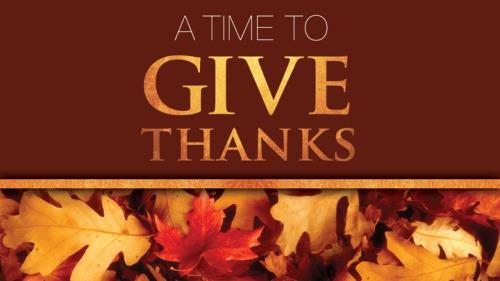-
The Principle Of Personal Conviction
Contributed by Davon Huss on Nov 28, 2017 (message contributor)
Summary: A sermon on Romans 14:5-12 on how to view Christians who are different from us (Material adapted from Dave Swavely's book, Who Are You to Judge?, chapter 8, What To Do When Someone Is Different From You)
HoHum:
What to do when someone is different from us and claims to be a Christian- motorcycle club ministry. Very different from my ministry so I might be tempted to judge them and what they do
WBTU:
Already talked about one principle from Romans 14:1-4, the principle of acceptance. Need to understand that we are talking about disputable matters, not matters settled by the Bible.
In vs. 1-4 Paul begins to talk about the controversial issue of eating meat. Some thought it was fine to eat meat, others thought it was bad to eat meat because might have been offered to a pagan idol.
Vs. 5- Here Paul introduces another controversial issue among Christians of the day- the observance of the Sabbath. This is still controversial today in some circles.
The basic principles of the Sabbath are still sound today. The two main principles are rest and worship. “There are six days when you may work, but the seventh day is a Sabbath of rest, a day of sacred assembly.” Leviticus 23:3, NIV.
The NT never says that the Sabbath day is binding upon Christians. In the NT, we observe the Lord’s Day. This is different from the Sabbath Day. One obvious way it is different is that the Lord’s Day is observed on Sunday while the Sabbath Day is observed on Saturday.
The question that remains Paul alludes to in vs. 5: Are the restrictions from the OT about the Sabbath Day binding upon Christians who now observe the Lord’s Day? How much of the Sabbath Day is transferred over to the Lord’s Day observance? For instance, “While the Israelites were in the desert, a man was found gathering wood on the Sabbath day. Those who found him gathering wood brought him to Moses and Aaron and the whole assembly, and they kept him in custody, because it was not clear what should be done to him. Then the LORD said to Moses, “The man must die. The whole assembly must stone him outside the camp.” So the assembly took him outside the camp and stoned him to death, as the LORD commanded Moses.” Numbers 15:32-36, NIV.
Are these kind of restrictions and punishments about “sacred days” binding upon NT Christians? Here is the sticky part: The NT never says anything about this. Basic interpretation principle: If it is repeated in the NT as binding, then it is binding. If it not repeated in the NT as binding then the OT commands are not binding upon Christians.
Seems strange that Paul could have cleared up this issue through his authority as an apostle and guidance through the Holy Spirit. This is what he does in 1 Corinthians 7 about issues regarding marriage. However, he does not do that about the Sabbath Day vs. the Lord’s Day. So what are we supposed to do about this?
Reminds me of an issue that might come up. Farmers have had problems getting their hay in without the hay getting wet. Let’s say that the farmers have a couple of dry days and cut the hay on Friday, hoping to bail it in a few days. The weather forecast says that it is going to rain on Monday. Some of the farmers bail their hay on Sunday afternoon after church because they are afraid the hay will get wet. Other farmers do not because they want to rest on the Lord’s Day. These farmers come to the preacher and ask who did right in God’s eyes, the ones who bailed the hay or the ones who did not because they wanted to rest and observe the Lord’s Day? What do I say? I plead the 5th amendment to the US Constitution.
Remember this: “Do not go beyond what is written.” 1 Corinthians 4:6, NIV.
Each person must be convinced in his own mind. God wants us to give thoughtful and prayerful consideration to these matters, until we have developed a personal conviction based on careful study, godly counsel, and even some debate.
Now this verse is not saying that we should develop a conviction that applies to everybody else, which on non biblical issues would be legalism. Remember legalism is going beyond what is written, making our personal opinions binding upon others without biblical support.
Rather this verse is saying that we should decide what we will practice personally, in our own lives and families. But what about others who have opposite convictions about the same matters? It is right, healthy, and biblical to say, “This is my personal conviction, but I respect the different convictions of others on this matter.”
What is not right and biblical, however, is to say, “I have freedom in Christ, so don’t judge me” on issues that we have not really considered. It is too easy for us to choose the path that we want to walk without considering what the bible says. We claim freedom to choose this path, when if fact we might not have that right to do so biblically.

 Sermon Central
Sermon Central



